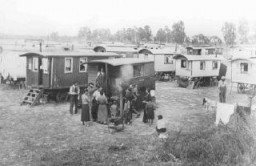You searched for: l%E1%BB%8Bch%20gi%E1%BA%A3i%20ngoai%20h%E1%BA%A1ng%20anh%E3%80%900242.com%E3%80%91bang%20x%E1%BA%BFp%20h%E1%BA%A1ng%20nha
<< Previous | Displaying results 1-10 of 85 for "l%E1%BB%8Bch%20gi%E1%BA%A3i%20ngoai%20h%E1%BA%A1ng%20anh%E3%80%900242.com%E3%80%91bang%20x%E1%BA%BFp%20h%E1%BA%A1ng%20nha" | Next >>
-
William L. Shirer
ArticleAmerican journalist, foreign correspondent, author, and pioneer radio broadcaster William L. Shirer was one of the key observers and chroniclers of the Nazi regime.
-
British General Bernard L. Montgomery
PhotoGeneral Bernard L. Montgomery, commander of British forces in Egypt, watches British tanks move toward German lines during the military campaign in North Africa. November 1942.
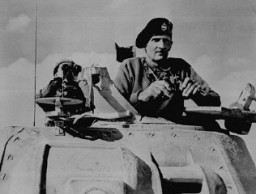
-
Frima L. describes roundup of Jews for mobile killing unit (Einsatzgruppen) massacre
Oral HistoryWhile Frima's family was confined to a ghetto, Nazis used her father as an interpreter. He later perished. By pretending not to be Jews, Frima, her mother, and sister escaped a German mobile killing unit massacre. They were later discovered and jailed. Again, her mother devised an escape. Frima's mother and sister were smuggled to Romania, while Frima wandered in search of safekeeping until her mother could arrange to smuggle her out. In Romania, they were reunited and liberated.
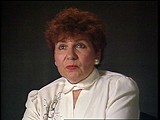
-
Frima L. describes surviving as a young child on her own
Oral HistoryWhile Frima's family was confined to a ghetto, Nazis used her father as an interpreter. He later perished. By pretending not to be Jews, Frima, her mother, and sister escaped a German mobile killing unit massacre. They were later discovered and jailed. Again, her mother devised an escape. Frima's mother and sister were smuggled to Romania, while Frima wandered in search of safekeeping until her mother could arrange to smuggle her out. In Romania, they were reunited and liberated.
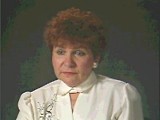
-
Frima L. describes escape from mobile killing unit massacre
Oral HistoryWhile Frima's family was confined to a ghetto, Nazis used her father as an interpreter. He later perished. By pretending not to be Jews, Frima, her mother, and sister escaped a German mobile killing unit massacre. They were later discovered and jailed. Again, her mother devised an escape. Frima's mother and sister were smuggled to Romania, while Frima wandered in search of safekeeping until her mother could arrange to smuggle her out. In Romania, they were reunited and liberated.
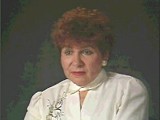
-
Frima L. describes how her Holocaust experiences affect her life today
Oral HistoryWhile Frima's family was confined to a ghetto, Nazis used her father as an interpreter. He later perished. By pretending not to be Jews, Frima, her mother, and sister escaped a German mobile killing unit massacre. They were later discovered and jailed. Again, her mother devised an escape. Frima's mother and sister were smuggled to Romania, while Frima wandered in search of safekeeping until her mother could arrange to smuggle her out. In Romania, they were reunited and liberated.
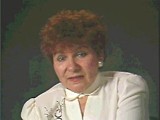
-
Father Jacques
ArticleFather Jacques (Lucien Bunel) provided refuge to Jews and others at a school in Avon, France. Imprisoned in several Nazi camps for his activities, he died soon after liberation.
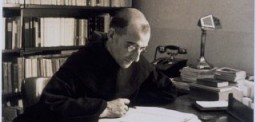
-
Bremen-Farge
ArticleLearn more about Bremen-Farge, a subcamp of Neuengamme where the majority of prisoners were used to construct an underground U-boat shipyard for the German navy.
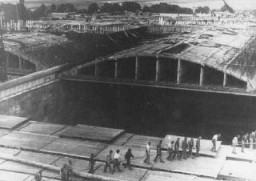
-
Mir
ArticleThe Mir ghetto was established in Mir, Poland in 1941. Learn more about life and resistance in the ghetto.
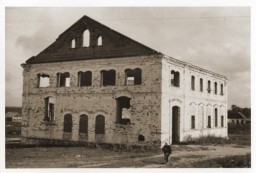
-
Berlin-Marzahn (camp for Roma)
ArticleThe Berlin-Marzahn camp was established a few miles from Berlin's city center, for the detention of Roma, on the eve of the 1936 summer Olympics.
